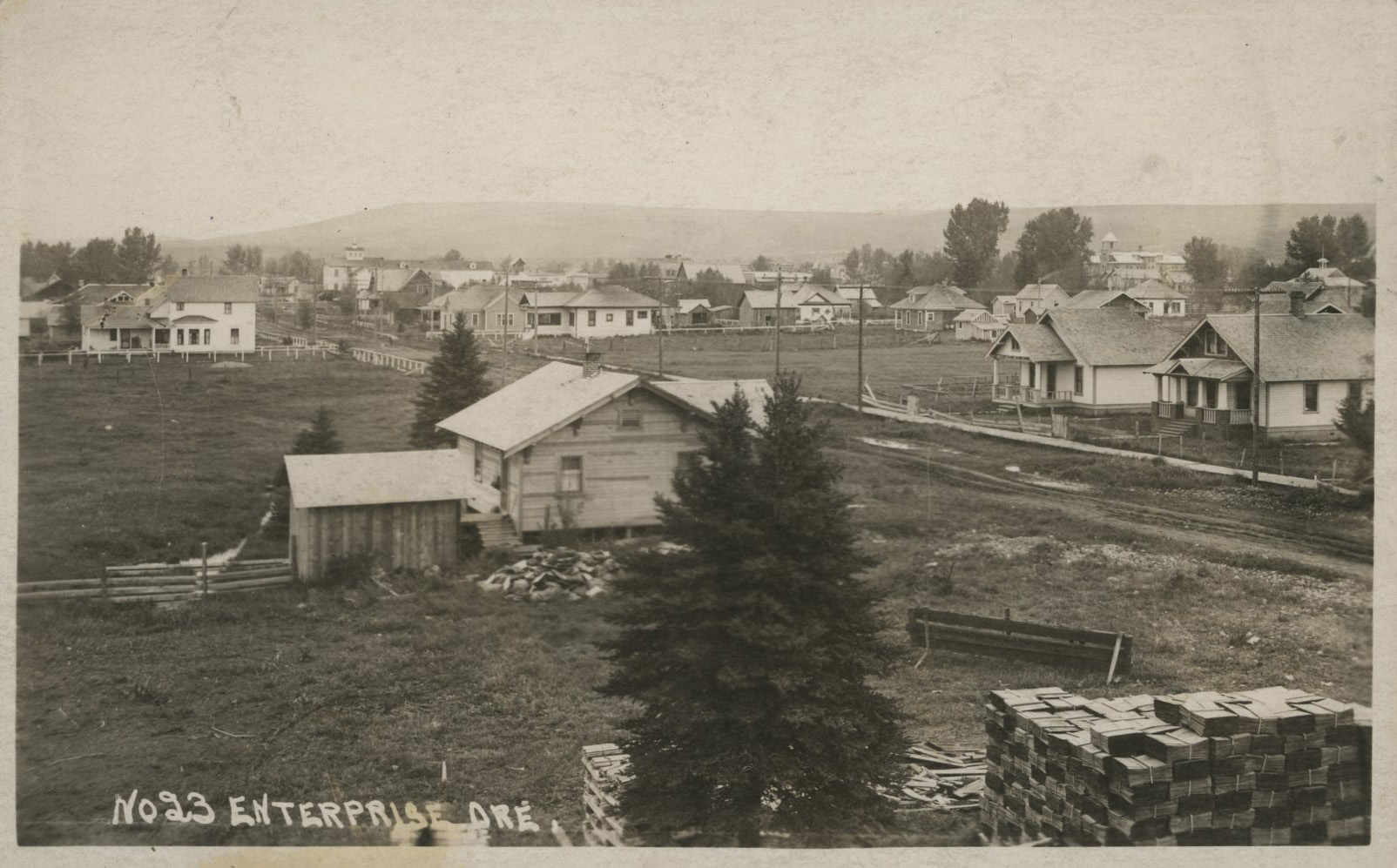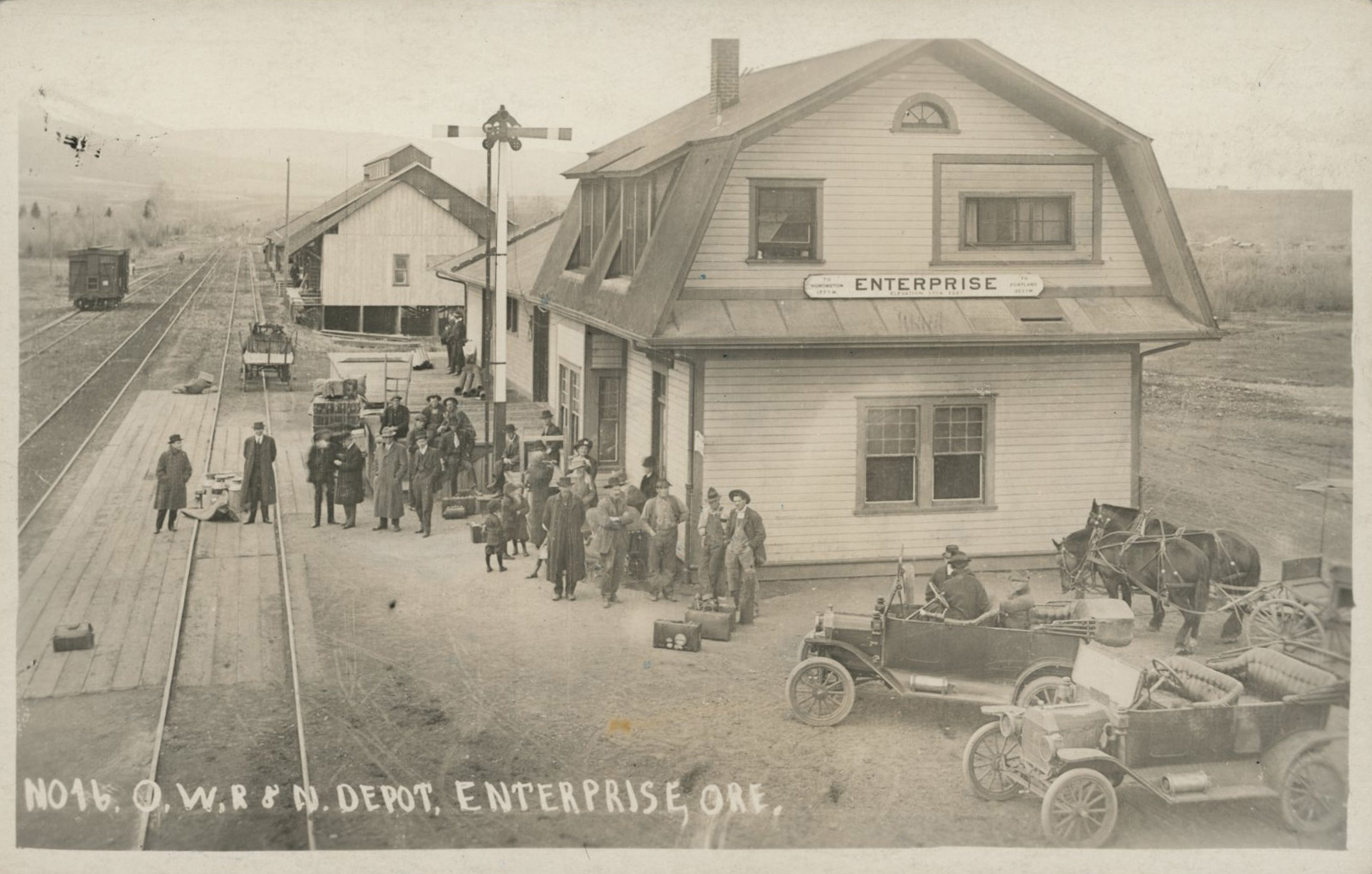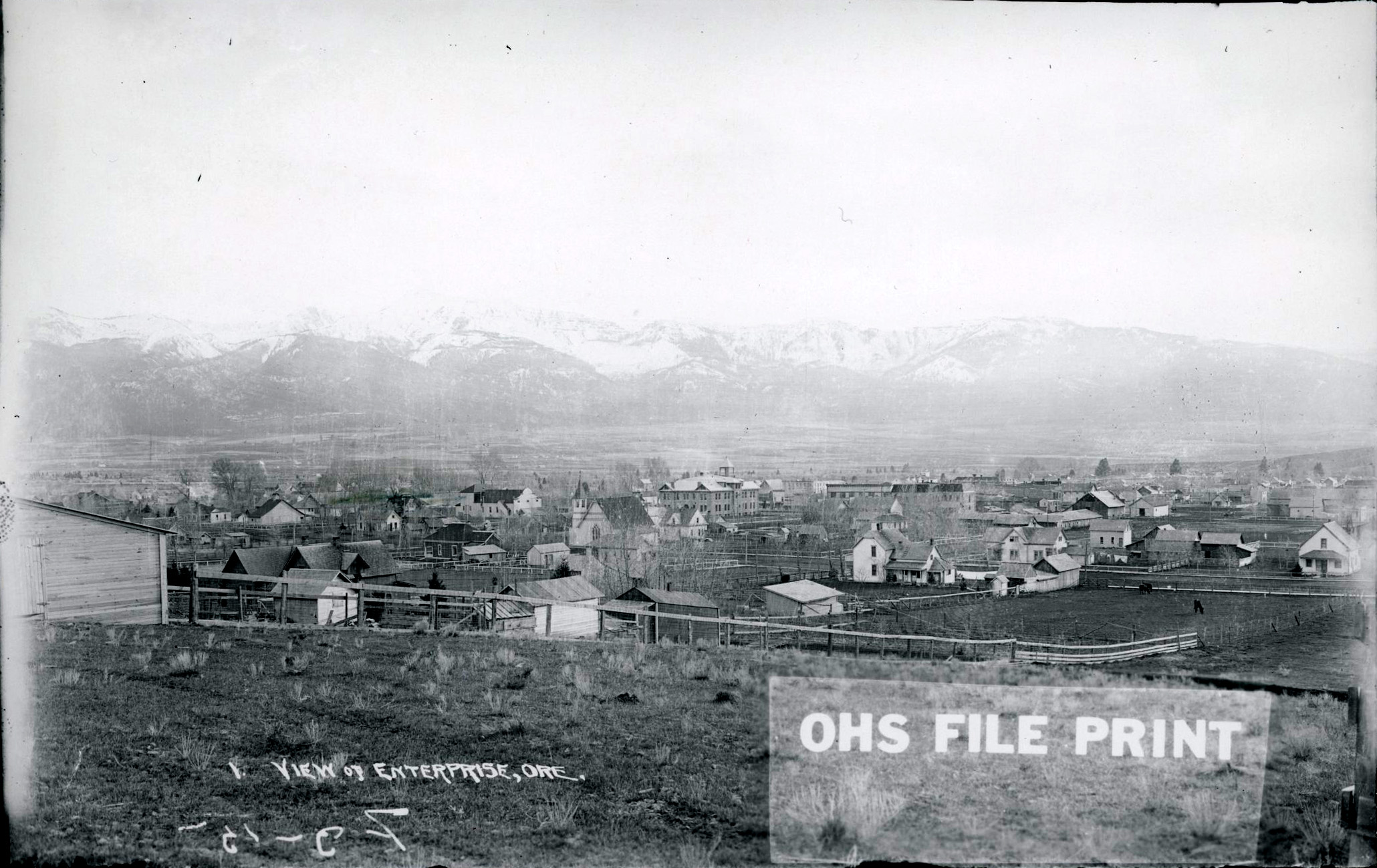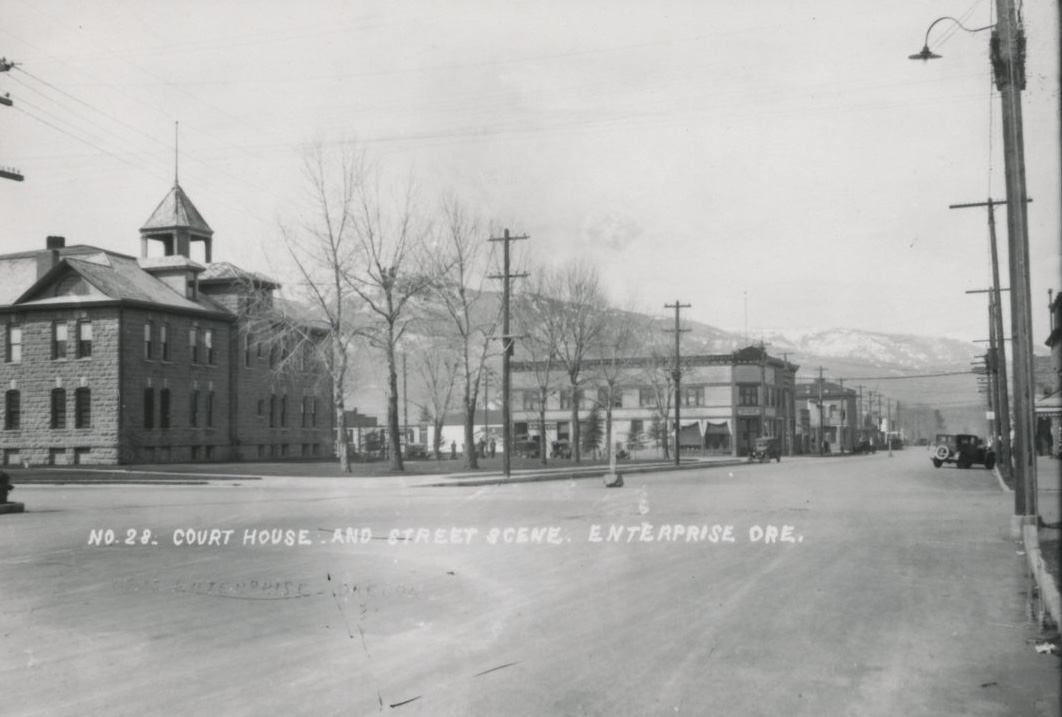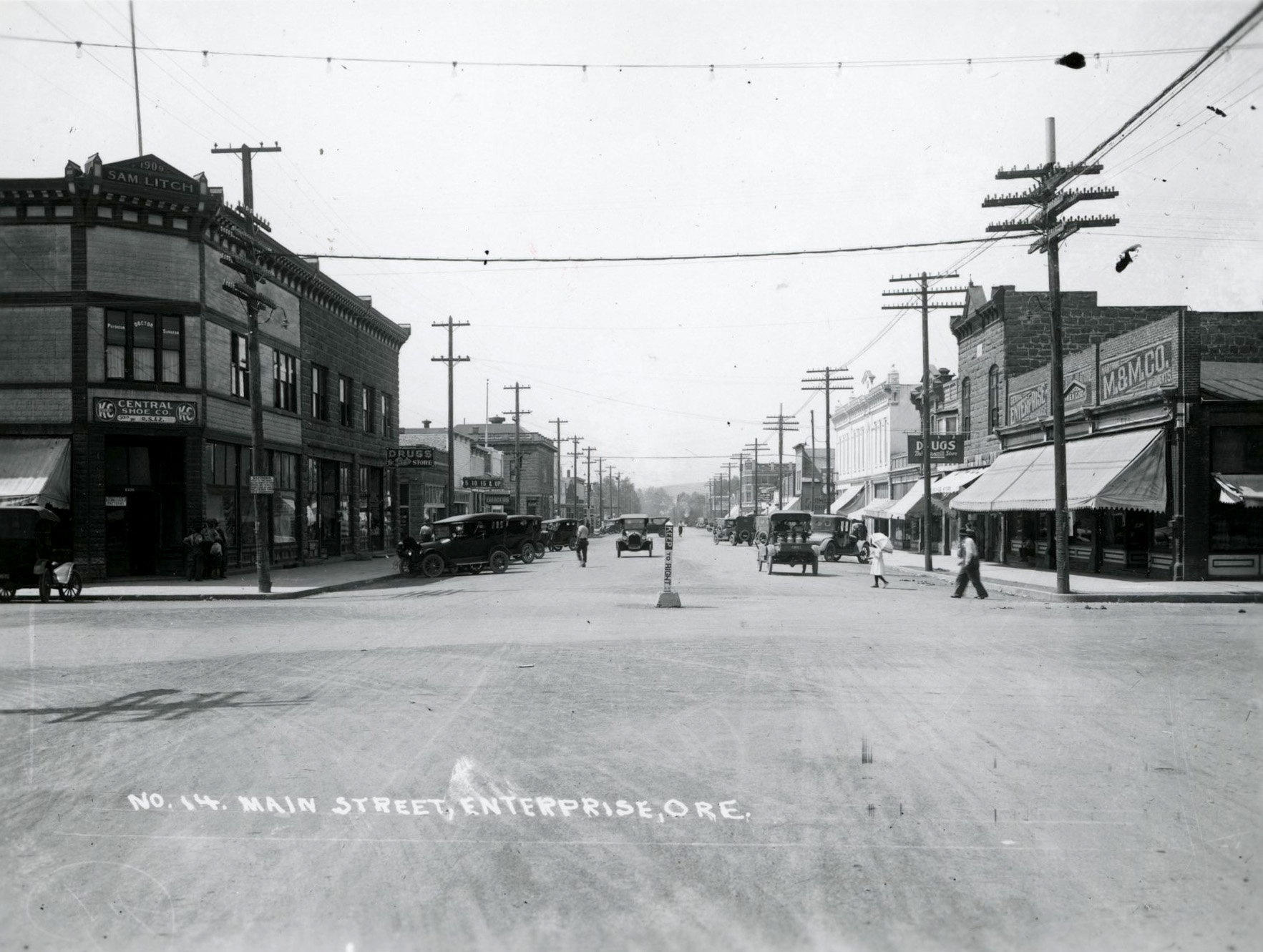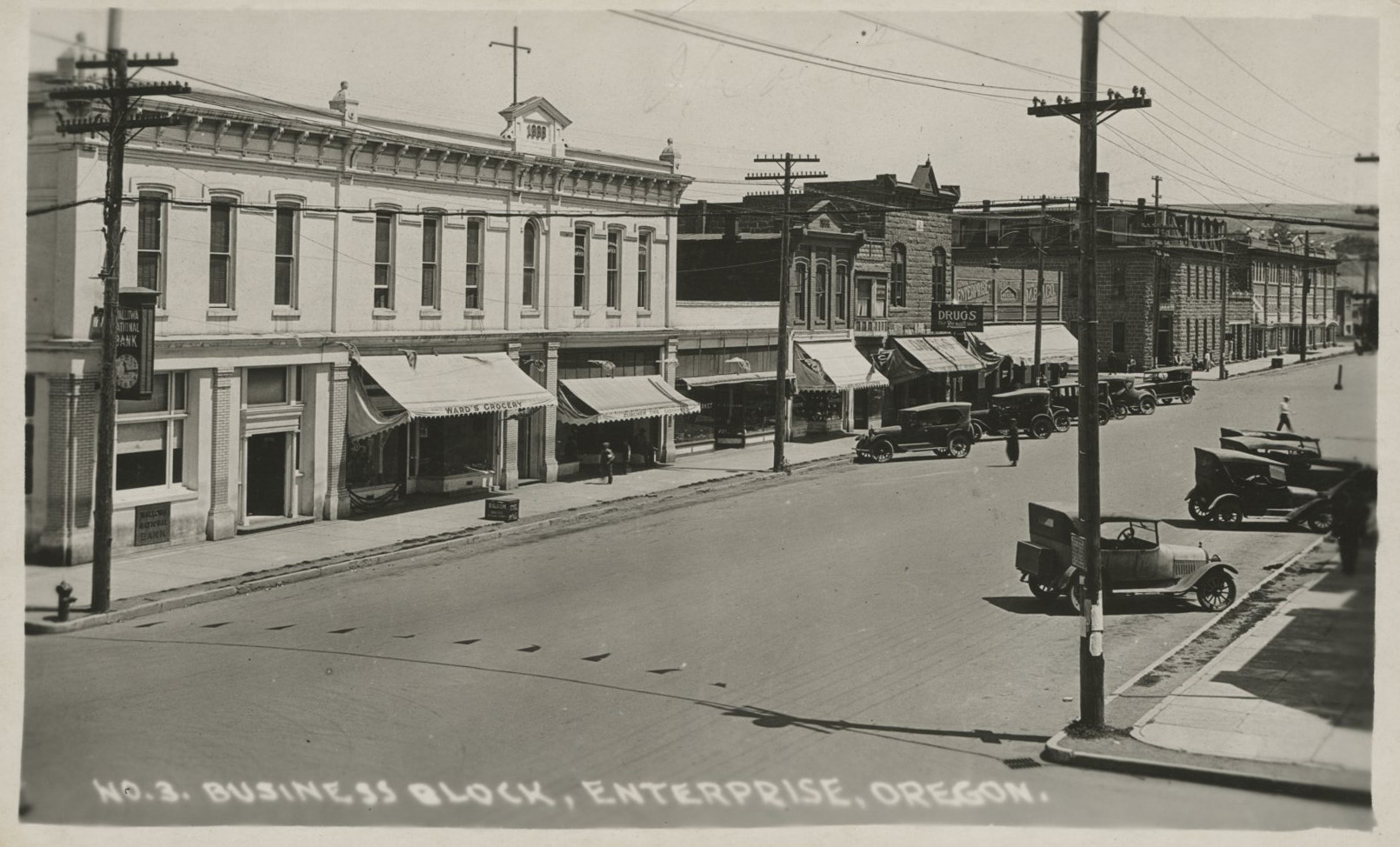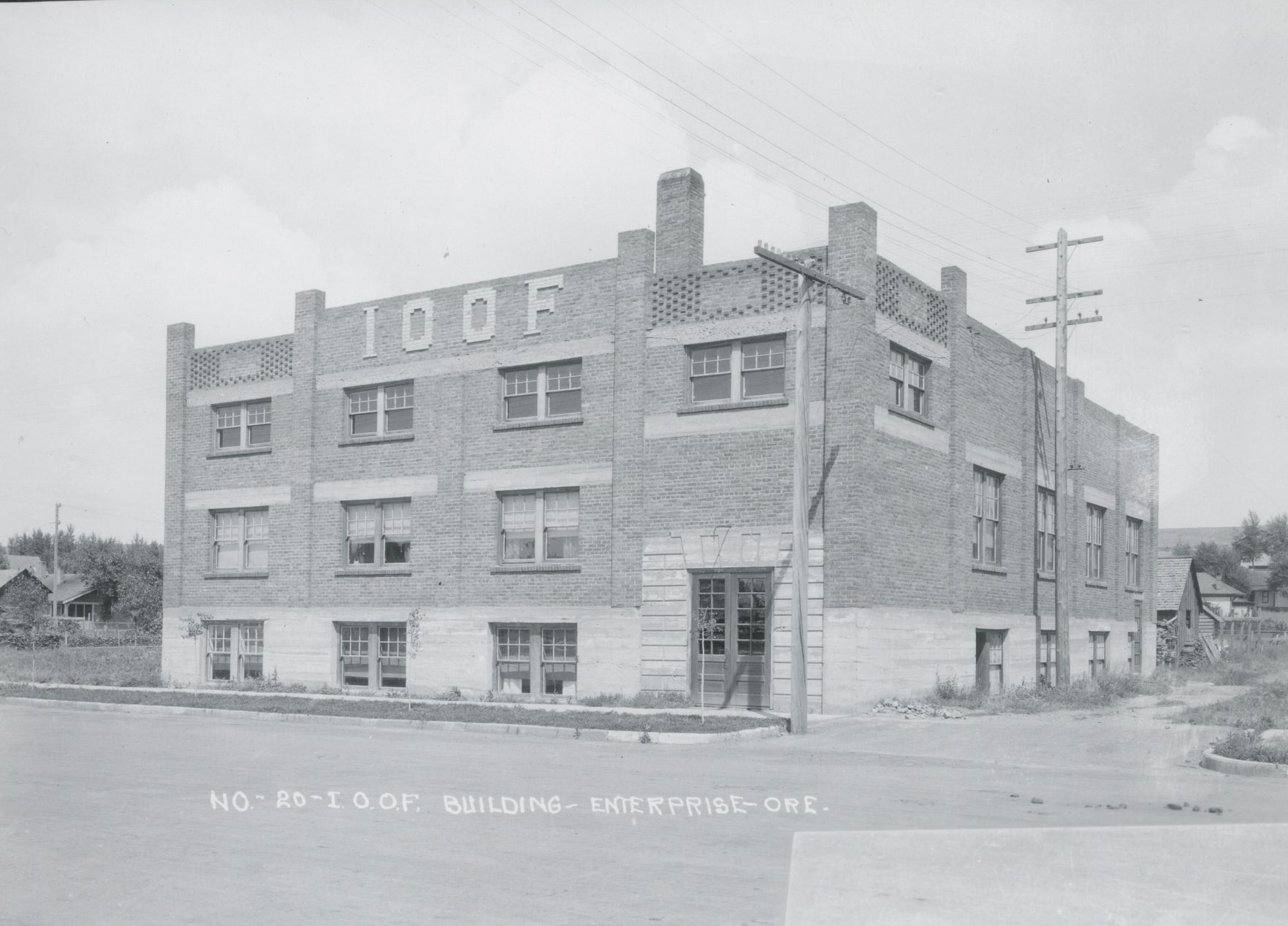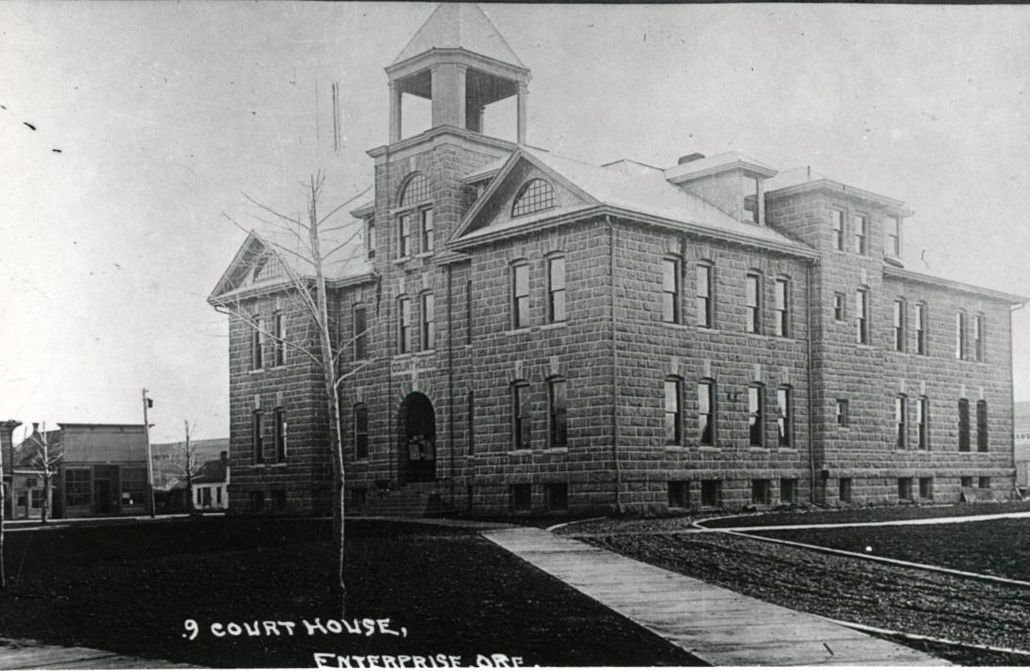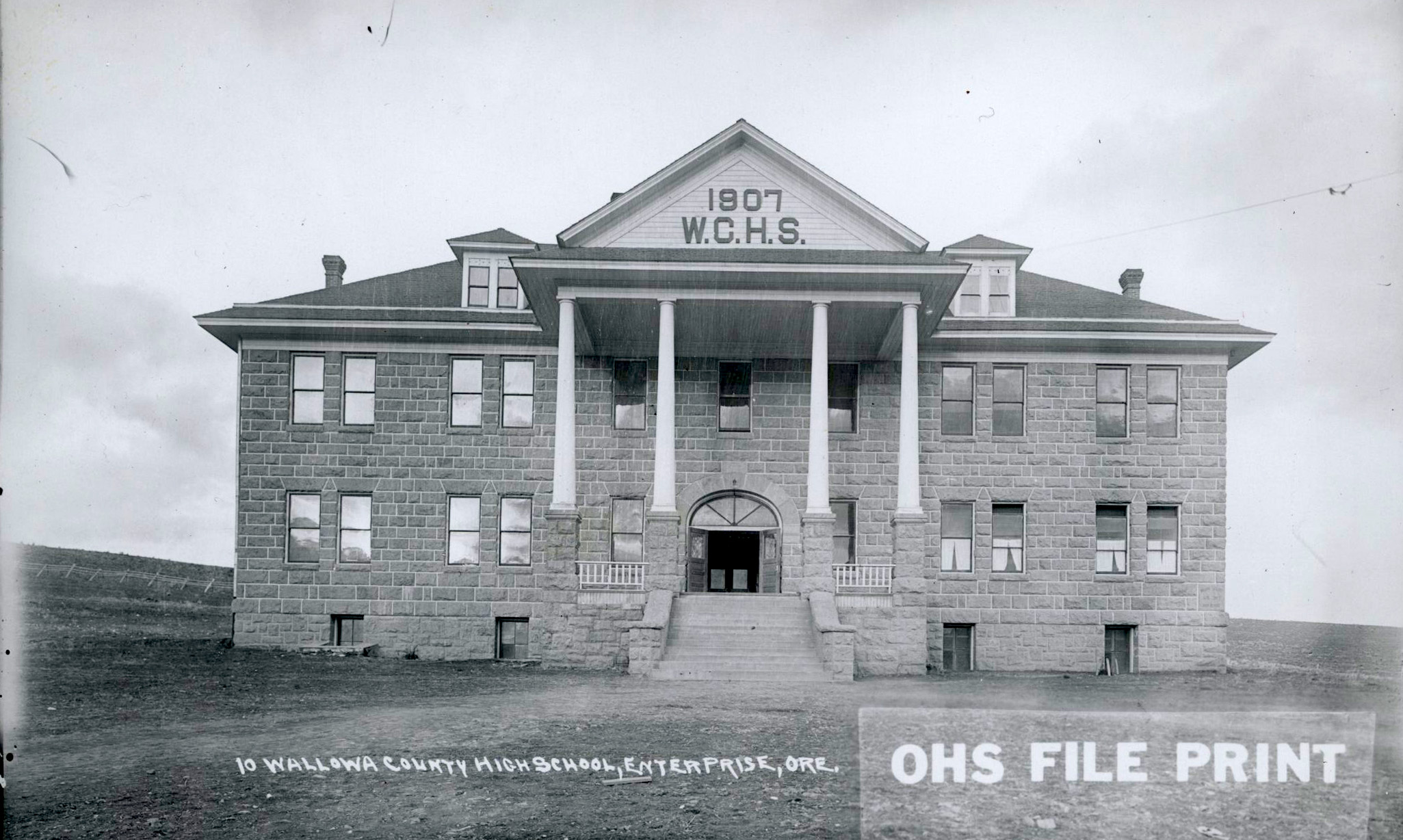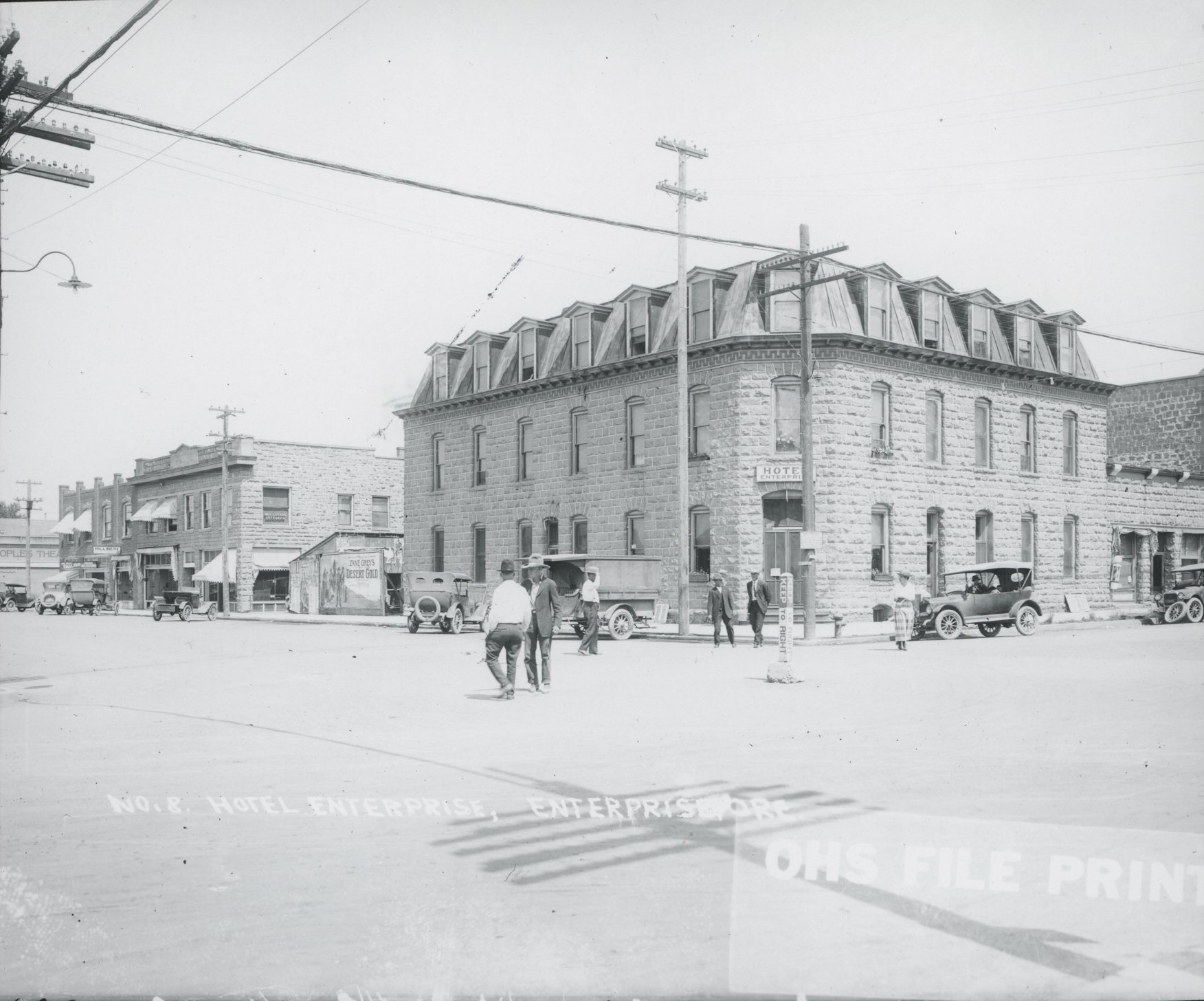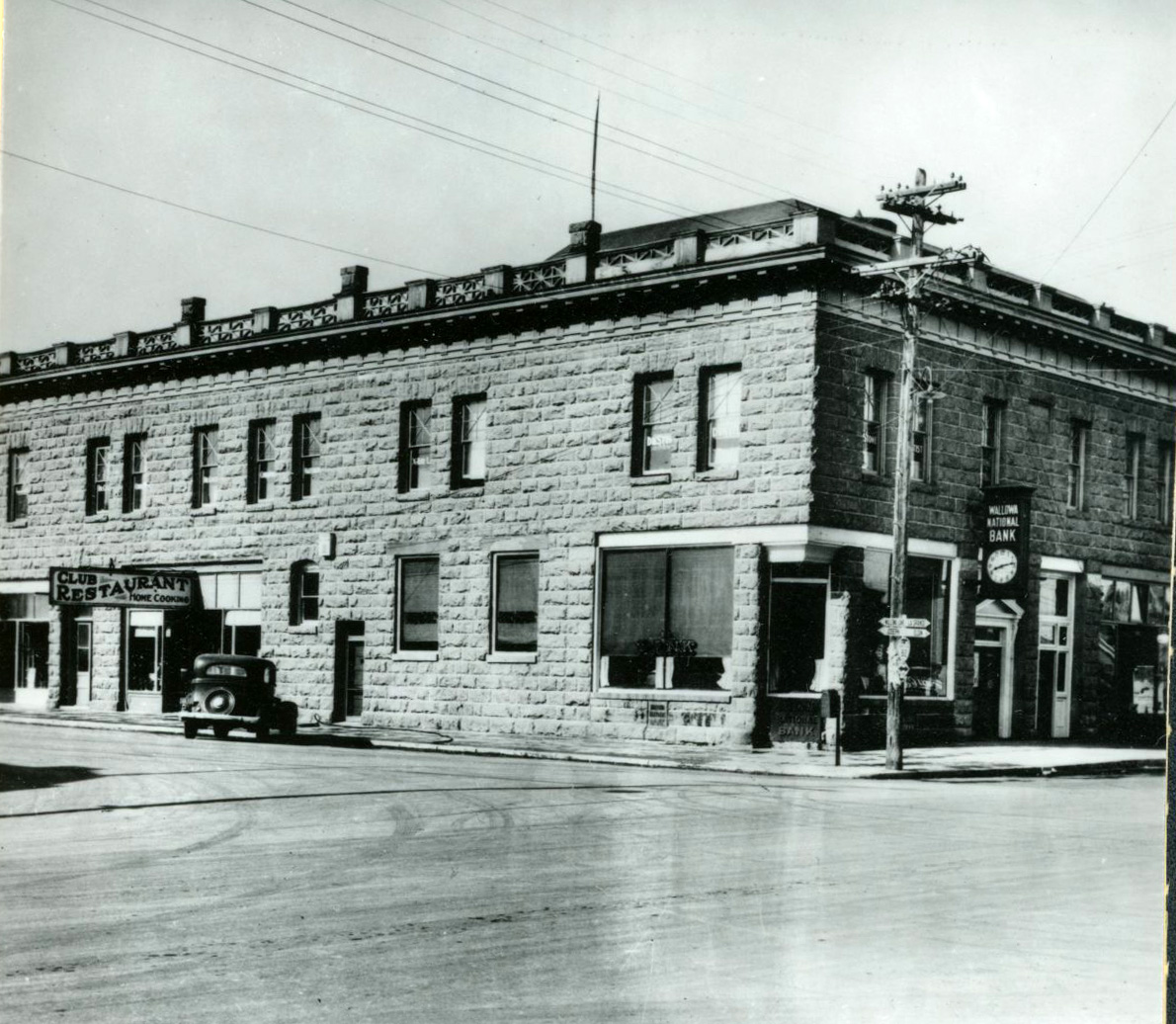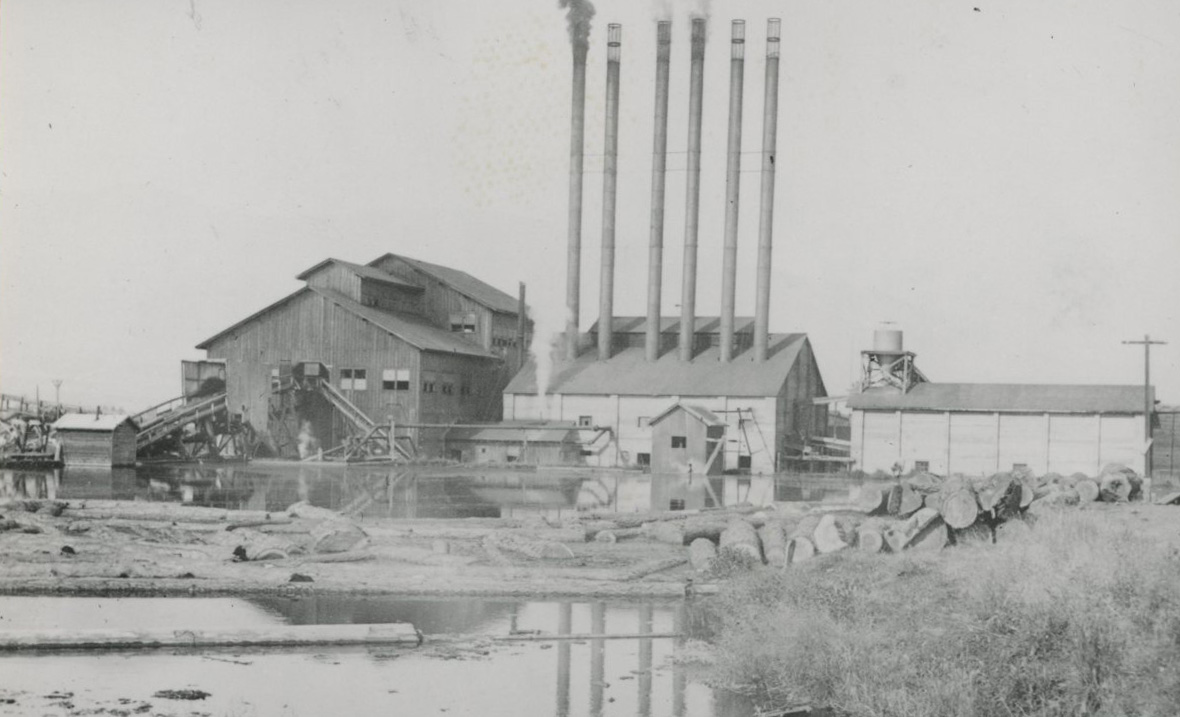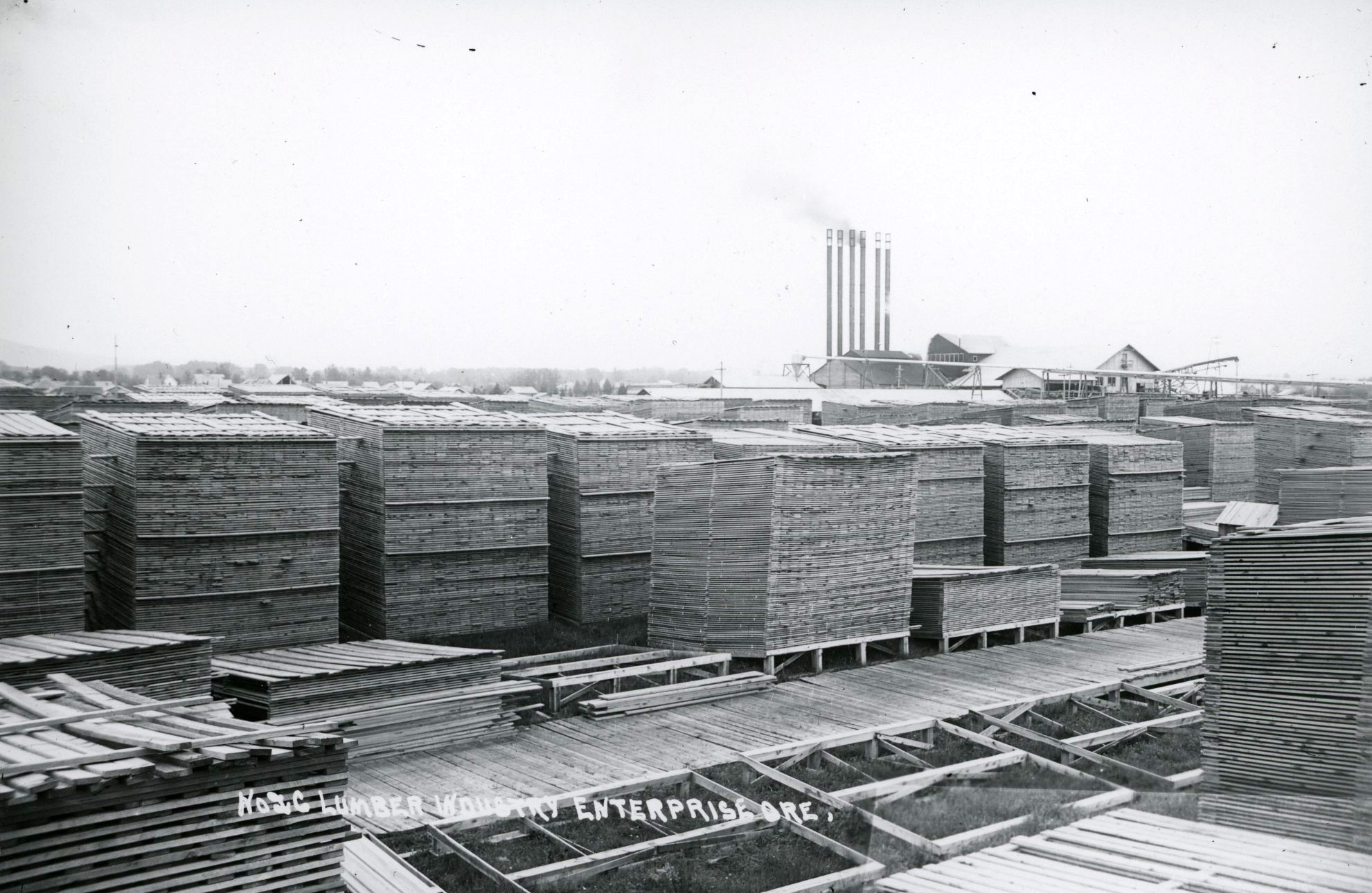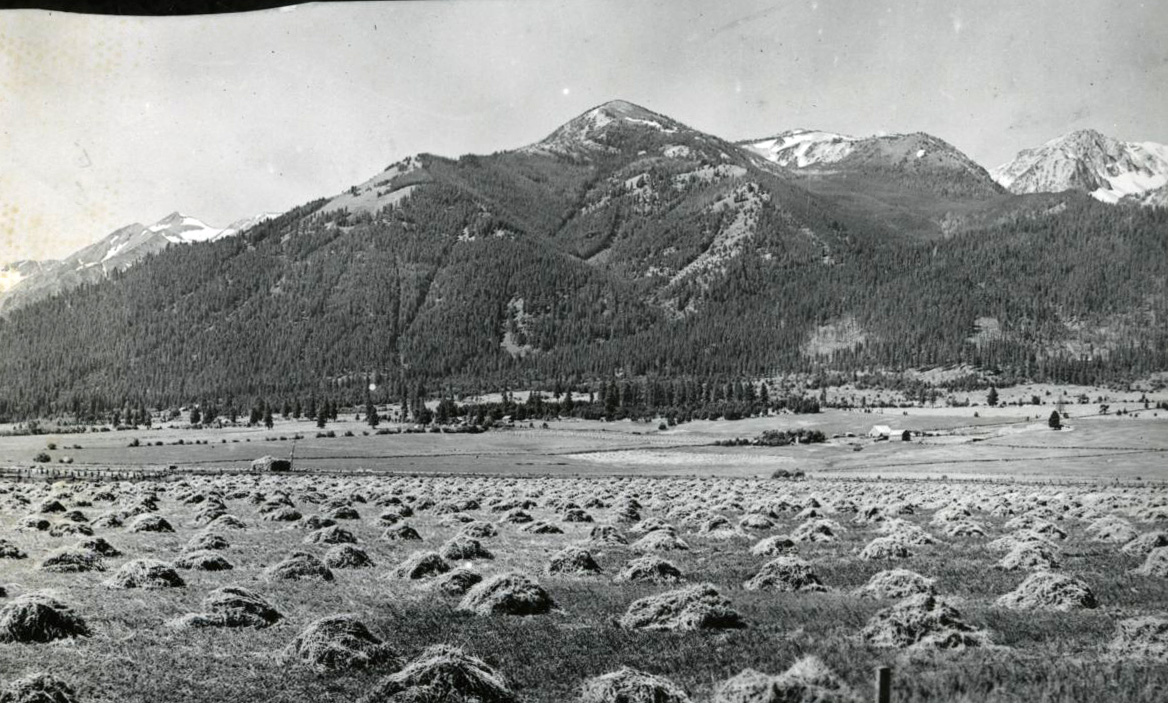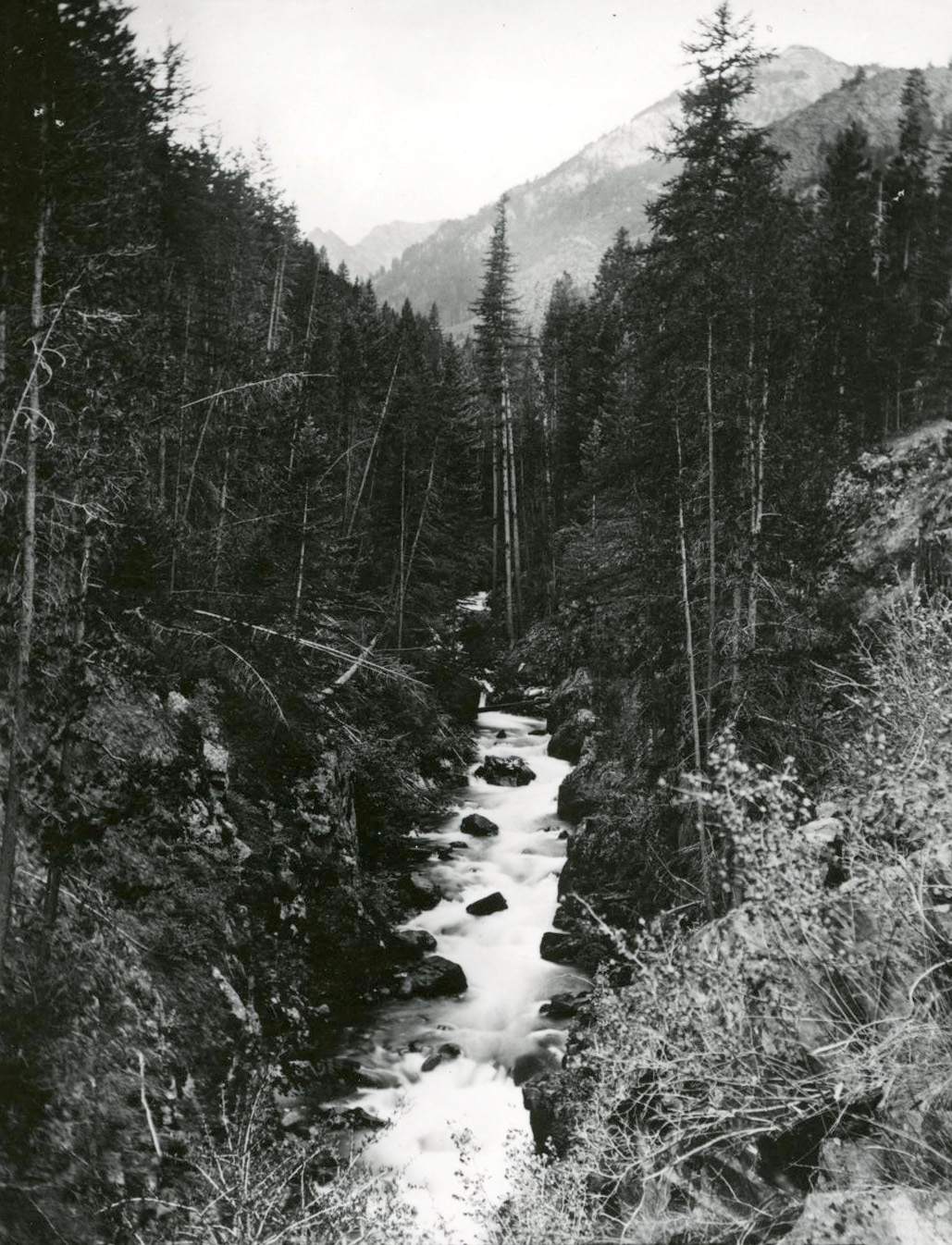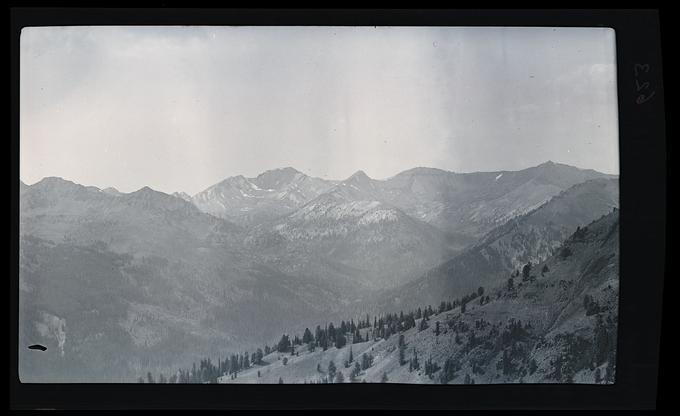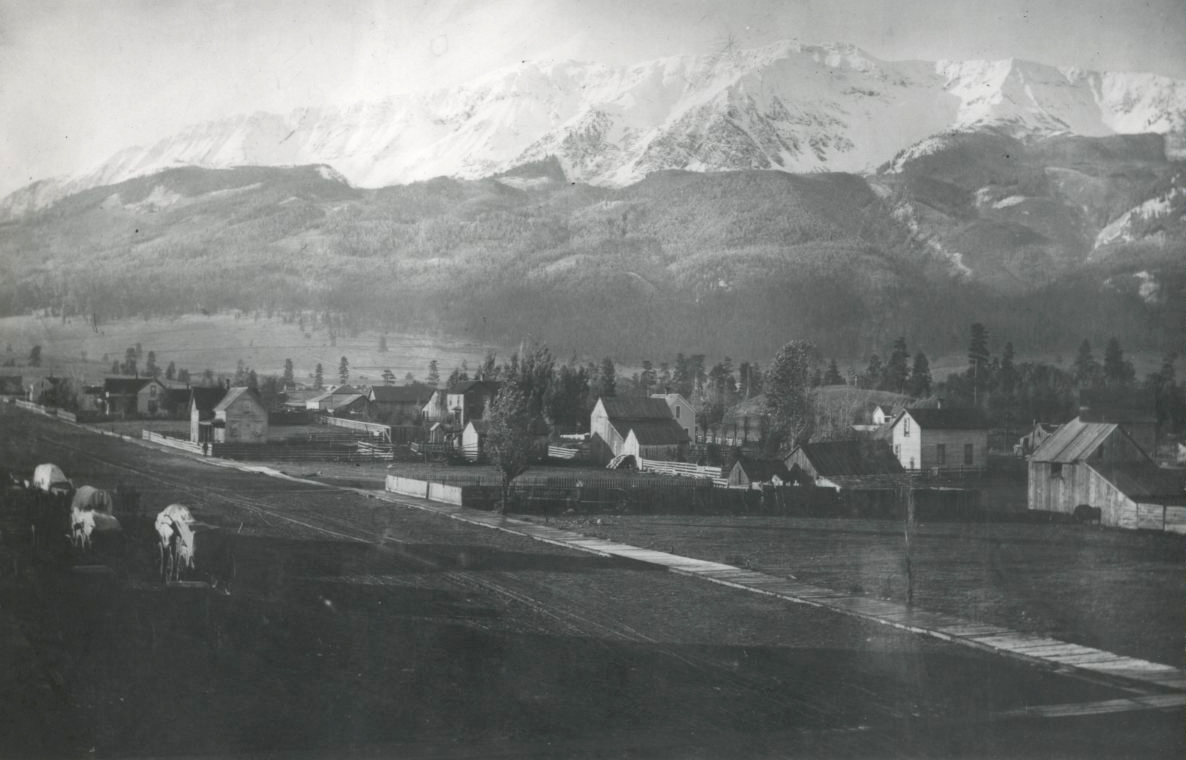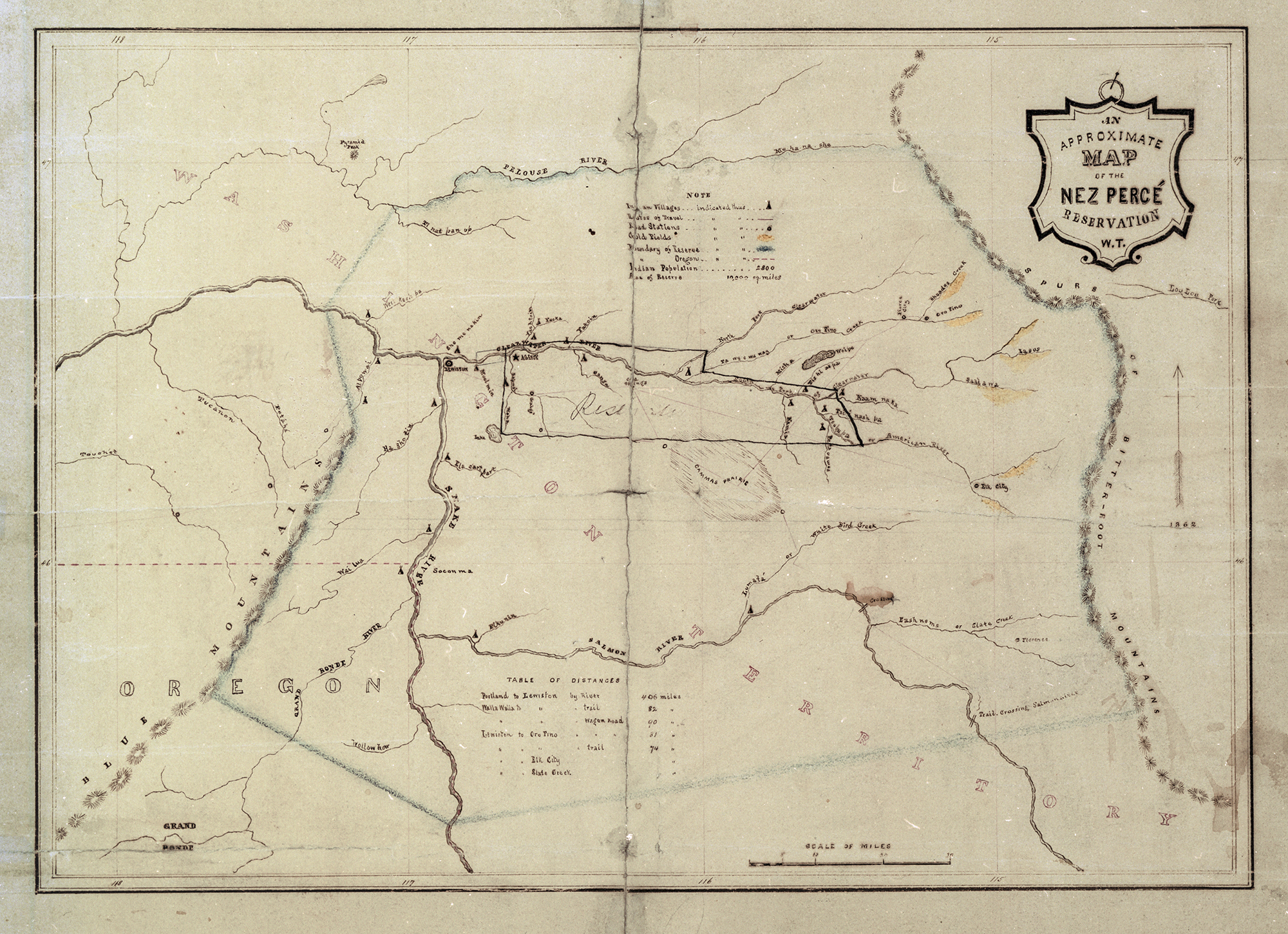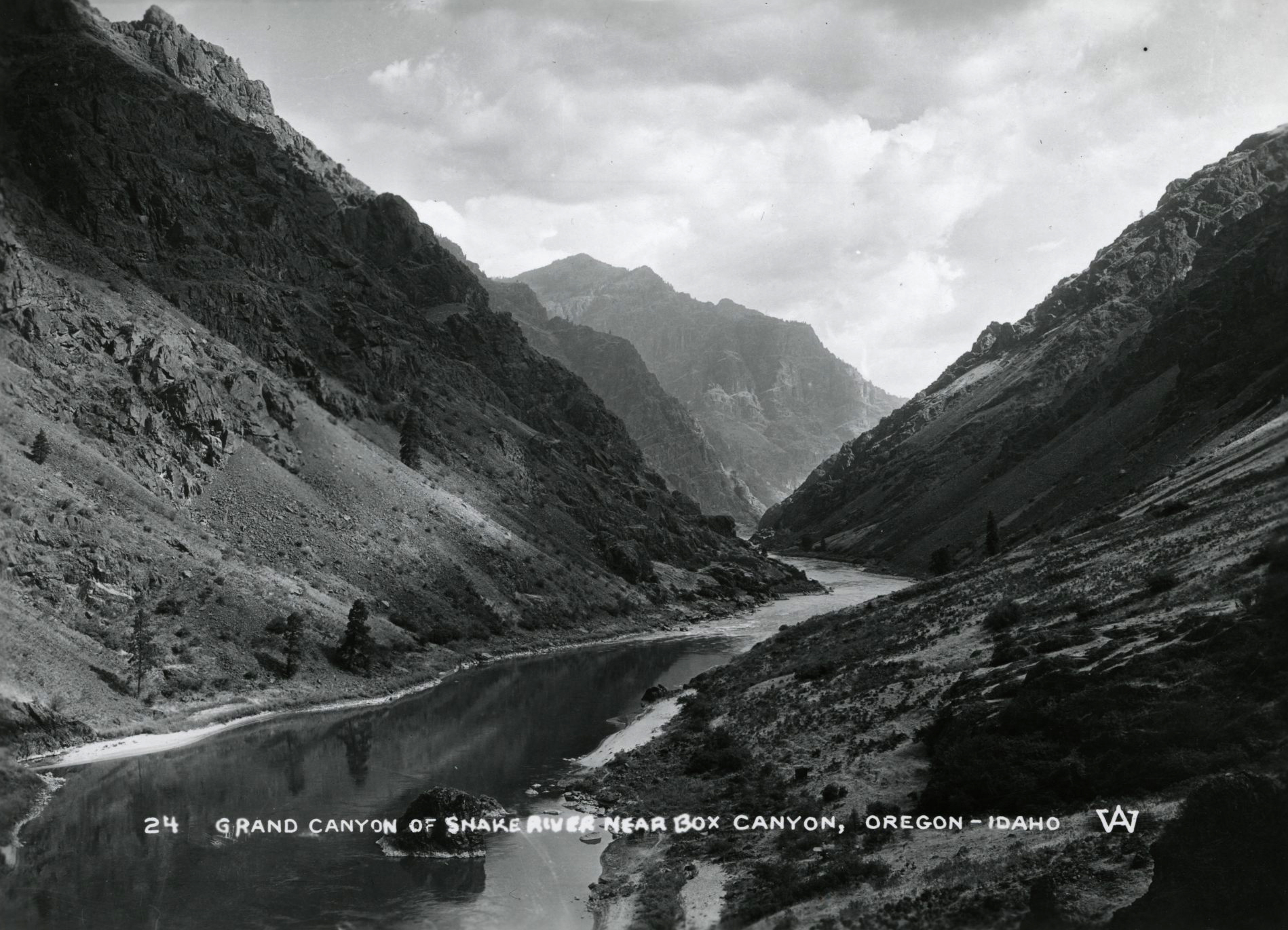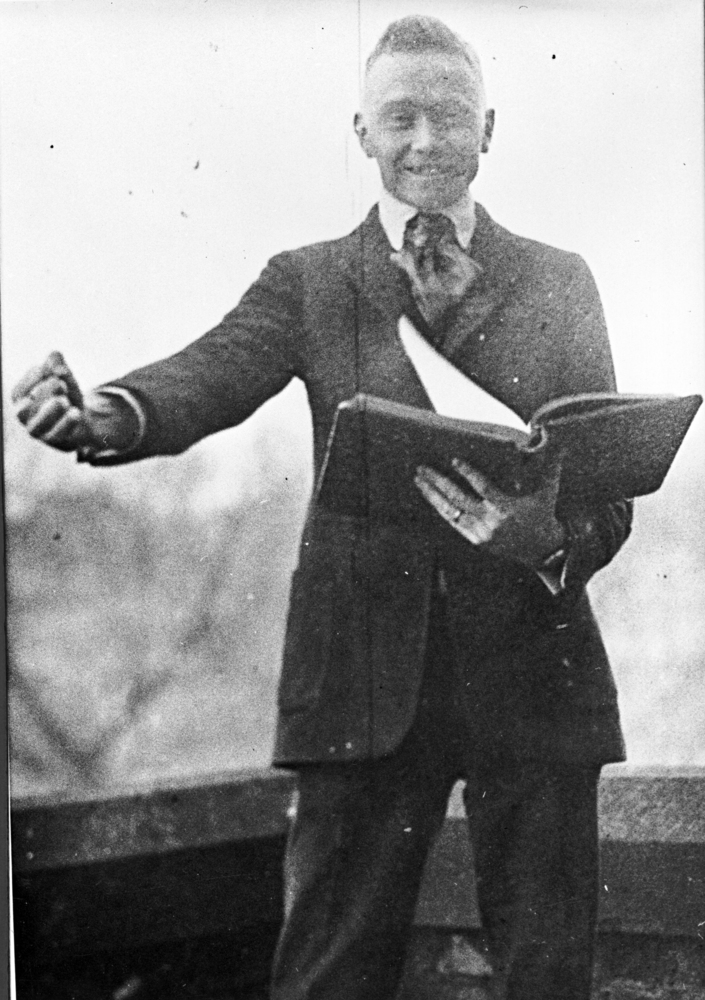Enterprise, the county seat of Wallowa County, is situated at the northern end of the Wallowa River Valley, the traditional homeland of the Wal-lam-wat-kain (Wallowa) band of the Nez Perce. White resettlers first arrived in the valley in 1872, seeking areas to graze their cattle, despite the Wallowa River Valley being firmly located on a previously designated Nez Perce reservation. After the forcible relocation of the Wallowa band in 1877, white resettlement in the Wallowa River valley began in earnest.
Resettlers considered the original site of Enterprise, then called Bennett Flat, an ideal location for a trading point in the lower valley. In 1887, when Wallowa County was legally separated from Union County because of the increase in population, the new county needed a county seat. The town of Joseph was the interim choice, but R.F. Stubblefield and John Zurcher, early residents of the Bennett Flat area, had platted a town site the previous year that was offered up as competition. The town, first called Franklin and then Wallowa City, attracted the owners of the Island City Mercantile and Milling Company, who were looking for free land in exchange for establishing a store and mill in Wallowa County. Joseph had rejected their advances, but the founders of Wallowa City sold a desirable lot in the newly platted town for a dollar to the Island City company, which built a flourmill there. The plat for Wallowa City also offered a site for a courthouse in the center of town.
The U.S. Post Office refused to recognize the name Wallowa City because it was similar to the name of a post office lower in the valley, so the town founders held a meeting to rechristen the town. The majority agreed on Enterprise, as it reflected the town's entrepreneurial spirit. Wallowa City officially became Enterprise in 1887, and the post office was established on November 9, 1887, with Catherine Akin as the first postmaster. The next year Enterprise won a hotly contested election to determine the county seat, with competition from Joseph and Lostine. Enterprise was incorporated in 1889.
As the county seat, Enterprise grew in earnest. A school was established, along with a water company, the Island City flourmill, a bank, a church, and a hotel. Brick buildings were constructed downtown in 1889, and the Wallowa County Chieftain, the county newspaper, relocated from Joseph to Enterprise four years later. By 1890, the town had 242 residents, primarily successful farmers and cattle ranchers.
The Wallowa County courthouse, built in Enterprise in 1909 from Bowlby Stone (locally quarried volcanic tuff commonly used in Enterprise construction), is on the National Register of Historic Places, as is the William P. Warnock house (1910) and the restored OK Theatre (1918). The theater still functions as a music and theater venue. A Carnegie library was constructed in 1914. It remains in operation today as the town's public library, one of eleven remaining Carnegie libraries in Oregon that still operate as libraries.
Through the twentieth century, Enterprise continued as the trading center for a large agricultural region. The arrival of the Oregon Railroad and Navigation Company line in 1908, coupled with the establishment of the Eastern Oregon Lumber Company in 1915, contributed to its economic development in the twentieth century. Modest population growth brought the town’s current population to 2,052 in 2020. Livestock continues as the center of Enterprise's economy, and many cattlemen and farmers still live in the Enterprise area. The town's primary employer in the twenty-first century is the Wallowa Memorial Hospital. Two bronze foundries, Parkes Bronze and TW Bronze, are also located in Enterprise.
Notable residents have included William B. Ault, a U.S. Navy commander during World War II; Dale T. Mortensen, winner of the Noble Prize in economics in 2010; and Blaine Stubblefield, who established the National Oldtime Fiddlers' Contest. William O. Douglas, associate justice on the Supreme Court between 1939 and 1975, owned a summer cabin near Enterprise.
Tourists are attracted to the Enterprise area by the outdoor recreational opportunities in the Wallowa River area and the Wallowa Mountains. Enterprise also serves as a jumping-off point for explorations in the Nez Perce National Historical Park, the Umatilla National Forest, the Wallowa-Whitman National Forest, and the Hells Canyon National Recreation Area.
-
![]()
Early photo of Enterprise, Oregon.
Courtesy Oregon Hist. Soc. Research Lib., ba009054
-
![]()
Depot in Enterprise, Oregon.
Courtesy Oregon Hist. Soc. Research Lib., ba009068
-
![]()
Enterprise, Oregon.
Courtesy Oregon Hist. Soc. Research Lib., ba009063
-
![]()
Enterprise, Oregon, courthouse on the left.
Courtesy Oregon Hist. Soc. Research Lib., Orhi15363
-
![]()
Main St., Enterprise, Oregon.
Courtesy Oregon Hist. Soc. Research Lib., ba009092
-
![]()
Main St., Enterprise, Oregon.
Courtesy Oregon Hist. Soc. Research Lib., ba0090935
-
![]()
IOOF Building, Enterprise.
Courtesy Oregon Hist. Soc. Research Lib., ba009094
-
![]()
Wallow County Courthouse, Enterprise.
Courtesy Oregon Hist. Soc. Research Lib., Orhi15342
-
![]()
Wallow County High School, Enterprise.
Courtesy Oregon Hist. Soc. Research Lib., ba009076
-
![]()
Hotel Enterprise.
Courtesy Oregon Hist. Soc. Research Lib., ba009093
-
![]()
Wallow National Bank, Enterprise, 1935.
Courtesy Oregon Hist. Soc. Research Lib., 005766
-
![]()
Eastern Lumber Co, 1930.
Courtesy Oregon Hist. Soc. Research Lib., 006899
-
![]()
Lumberyard in Enterprise, Oregon.
Courtesy Oregon Hist. Soc. Research Lib., ba0090935
-
![]()
Haas Ranch, near Enterprise, Oregon, 1931.
Courtesy Oregon Hist. Soc. Research Lib., 014934
-
![]()
Hurricane Creek in the Wallowa Mountains.
Courtesy Oregon Hist. Soc. Research Lib., 008955
Related Entries
-
![Heinmot Tooyalakekt (Chief Joseph) (1840-1904)]()
Heinmot Tooyalakekt (Chief Joseph) (1840-1904)
Heinmot Tooyalakekt (Thunder Rising to Loftier Mountain Heights), also …
-
![Joseph (town)]()
Joseph (town)
The town of Joseph, situated at the base of the Wallowa Mountains at th…
-
![Native American Treaties, Northeastern Oregon]()
Native American Treaties, Northeastern Oregon
After American immigrants arrived in the Oregon Territory in the 1840s,…
-
![Snake River]()
Snake River
The Snake River has its headwaters at an elevation of 8,200 feet on the…
-
![William O. Douglas (1898-1980)]()
William O. Douglas (1898-1980)
Although he hailed from the State of Washington, William O. Douglas rep…
Related Historical Records
Map This on the Oregon History WayFinder
The Oregon History Wayfinder is an interactive map that identifies significant places, people, and events in Oregon history.
Further Reading
An Illustrated History of Union and Wallowa Counties with a Brief Outline of the Early History of the State of Oregon. Western Historical Publishing Company, 1902.
McArthur, Lewis. Oregon Geographic Names. 7th ed. Portland: Oregon Historical Society Press, 2003.
Points of Interest. City of Enterprise, Oregon. Webpage. Accessed June 2, 2017.

